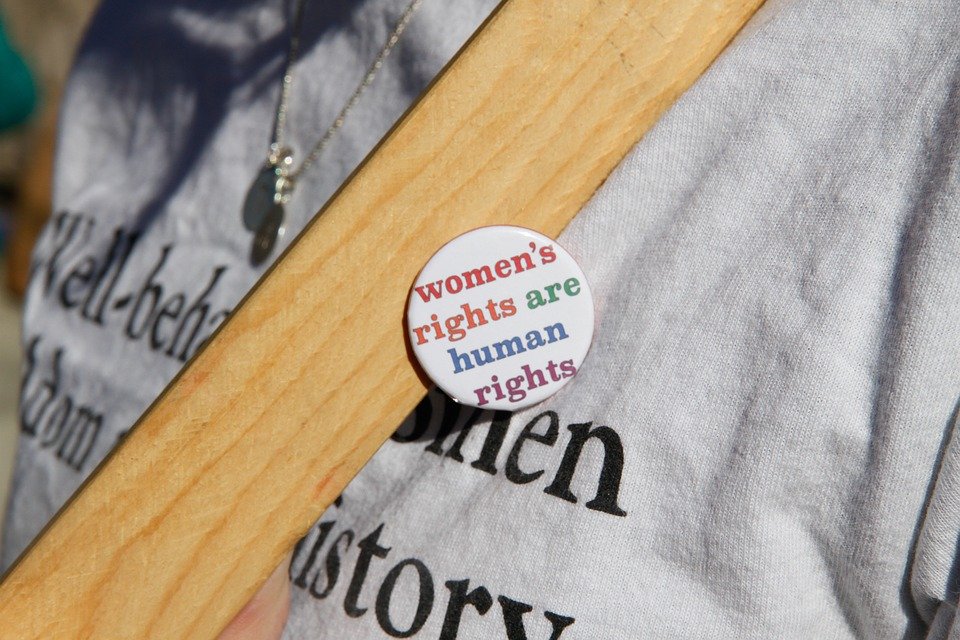
23 September, 2020
Report of the Special Rapporteur on the rights to freedom of peaceful assembly and of association, Clement N. Voule
Celebrating women in activism and civil society: the enjoyment of the rights to freedom of peaceful assembly and of association by women and girls
In the present report, the Special Rapporteur on the rights to freedom of peaceful assembly and of association, Clement N. Voule, recognizes and elevates the contributions of women in civil society and activism to the advancement of democracy, peace and sustainable development and examines the gendered and intersectional barriers, reprisals and backlashes faced by women to their full and equal enjoyment of the rights to freedom of peaceful assembly and of association. The Rapporteur provides recommendations to promote an enabling environment for the rights of women to assemble and associate.
Read the Report
Introduction
1. Women of all ages and backgrounds, working collectively and creatively, are leading and inspiring social movements, peaceful protests and civil society initiatives that seek to transform existing social, political and economic structures. They are at the forefront of today’s most pressing global struggles, including tackling the greatest impediments to achieving the 2030 Agenda for Sustainable Development and responding to the coronavirus disease (COVID-19) pandemic. Whether it is speaking up against militarization and discriminatory policing, fighting poverty and economic inequality, reclaiming democracy and political freedom, advancing women’s rights and gender equality, improving communities or organizing for fair work and climate justice, women are the drivers of change around the world.
2. The exercise of the rights to freedom of peaceful assembly and of association is central to these movements and initiatives. These fundamental freedoms empower women to “express their political opinions, engage in literary and artistic pursuits and other cultural, economic and social activities, engage in religious observances or other beliefs, form and join trade unions and cooperatives and elect leaders to represent their interests and hold them accountable”. Nonetheless, despite their vital importance, the voices of women and their contributions to activism and civil society continue to be undervalued, under-resourced and undermined. While significant progress has been made to ensure women’s participation in public life, State and non-State actors alike continue to violate women’s rights to the freedoms of peaceful assembly and of association – both online and offline. In many cases, the situation has even deteriorated, with many women experiencing an increase in severe violations of these fundamental freedoms and backlashes against gender equality. The COVID-19 pandemic has exacerbated many of these challenges and constraints.
3. In the present report, the Special Rapporteur recognizes and elevates the enormous contribution to human rights, peace and sustainable development by women exercising their rights to freedom of peaceful assembly and of association, while examining the gendered and intersectional restrictions that they face to exercise these freedoms. The report concludes with recommendations to States and other stakeholders to promote an enabling environment for the rights of women to assemble and associate. The report is submitted pursuant to Human Rights Council resolution 15/21, which gives the Special Rapporteur an explicit mandate to “integrate a gender perspective throughout the work of the mandate”.
4. The report is informed by the lived experiences and testimonies of women interviewed in the preparation of the present report and obtained during an online consultation with civil society convened by the Special Rapporteur on 10 June 2020. It is also based on findings during country visits, communications sent to States and numerous discussions by the Special Rapporteur with women in civil society. In addition, the report builds on the work of various United Nations agencies, treaty bodies and special procedures, including thematic reports by the mandate holder. The Special Rapporteur had the benefit of 15 submissions from States, 34 from civil society organizations and 6 from national human rights institutions.
5. References to “women” here include girls, as well as those transgender and intersex persons who identify as women and gender non-conforming persons affected by social constructions of women. Women’s organizations and movements are understood in the present report as groups of individuals that join together to pursue a common agenda of change with a critical mass of women who “are the subjects, not objects or targets, of the organization and movement.”4 These organizations and movements are centred on meaningful women’s leadership. Their contribution includes and goes beyond gender equality to broader human rights, peace and development issues.



